America's Urban Heritage: Culpeper, Virginia Edition
The kind of place we should keep building
Readers: This week marks the two-year anniversary of this newsletter! For just this week, I’m offering an anniversary discount for new yearly subscribers, in case you’ve been on the fence about upgrading to a paid subscription. Your support—whether reading, sharing, or subscribing—keeps this thing going. Here’s to another year of The Deleted Scenes!
Small towns are fantastic examples of classically urban land use, at a relatively low intensity. They frequently have hard boundaries, with rural or agricultural surroundings beyond. They feature mixed-use multistory downtowns, a mix of housing types, and frequently many blocks of houses, all within a street grid. The small town—distinct from both sprawl and the “big city”—is a pattern we should adopt again.
Sometimes a place really crystalizes this and brings it home for me. Culpeper, Virginia, at the southern reach of Northern Virginia broadly defined, is one such place.
Culpeper’s main commercial drag terminates with a mountain vista. If that isn’t perfect.
I’d been there twice, and by the second visit I knew I wanted to write a photo essay; I even teased it back at the beginning of 2022. Finally, a couple of weeks ago, I spent half a day in this classic Virginia town of 20,000, exploring and photographing it. Here is that piece.
Find all of my Culpeper photos here!
Culpeper, at first glance, is a railroad town; its rail line, opened in the late 1840s and still in service, not only carries freight, but is part of Amtrak. The train station now also houses a small visitor’s center and museum. Small-town museums are a beautiful thing. They illustrate how these small places still had civic, business, and community institutions. They had a deep sense of place, identity, and local patriotism. Churches, banks, courthouses, memorial plaques, clocks, fountains. In many ways small towns all “look the same.” But it’s a sameness we like.
The Amtrak trains that now serve Culpeper are neither cheap enough nor frequent enough to functionally connect, for everyday purposes, the town to other cities on the line, like Manassas or Charlottesville. But the passenger infrastructure actually being there is more than a lot of erstwhile rail towns can say. (Everything old is new again; rail connected Culpeper to Alexandria back then, and still does. Today, Culpeper is an outer bedroom community of Washington, D.C. and Northern Virginia.)
You might think, then, that Culpeper itself dates to the late 1840s, roughly a time when very similar rail towns sprouted up all over America, following a rough design template. (Some even had downtown blocks with buildings on only one side; the other side was the tracks.)
Here’s Culpeper in an 1863 map hanging in the museum, evincing the elongated shape of a rail town.
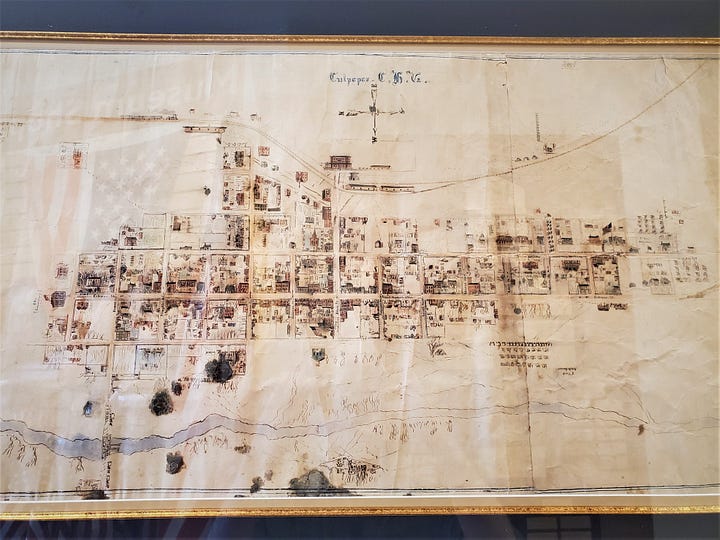

But, remarkably, Culpeper and its core downtown were already a century old by the time the Civil War broke out. Culpeper, originally a compact 10-block settlement, dates all the way back to 1759, when the town was chartered. Its origin goes back a decade earlier—to 1749, when a 17-year-old George Washington was commissioned to survey and plot both the town and the eponymous county.
This suggests that America’s heritage is both rural/agricultural and urban—neither the modern muddle of suburbia, nor the rural half only, into which suburbia is conceptually shoehorned. This sharp contrast between the dense urban settlement and the surrounding unbuilt countryside was the norm, going back to the country’s inception.
This pattern held, whether the urban settlement was a village, a town, a small city, or a large city. And it held, more or less, until the car and especially until the advent of public policies, from the FHA to the Interstate Highway System, that undid it.
The notion sometimes comes up that American urbanism is a European import; that dense urbanism is in some way alien to the American character. But the fact is that American urbanism remained fundamentally in continuity both with European urbanism and with its own past, up to the postwar era. Culpeper’s official site notes:
The twentieth century brought far-reaching changes to the Town with the growth in popularity of the automobile. Construction of a bypass around the Town in the late 1960s pulled residential, commercial and industrial growth away from the Town center. After years of falling into disrepair, the Town responded to the challenge by establishing a program to revitalize its downtown, and in 1987, became a Virginia Main Street Community. Today, this effort continues….
Culpeper, and other towns like it, are living fossils. They are no longer made. Nor, to a great extent, is the body of knowledge that built them still in general circulation. Nor do the vast majority of zoning codes now in force permit development like this.
Perhaps NIMBYism is in some respects a noble impulse to preserve and exhibit these non-renewable resources. And perhaps one way to break the impasse is to again permit the construction of places worth calling home.
What does Culpeper look like?
It is home to grand buildings, civic and commercial alike.
It is home to timeworn workhorse buildings, of a size and scale that would be far more at home in a block of, say, Brooklyn than in most of American suburbia.
It has entertainment.
It has a number of restaurants and shops, at least two bed and breakfasts, and it is supremely walkable. It has texture, variety, visual interest, skylines, nooks and crannies, three-dimensionality. It has commercial color. And it has—in addition to apartments, duplexes, small multifamily buildings, and townhomes—many streets of lovely detached houses.
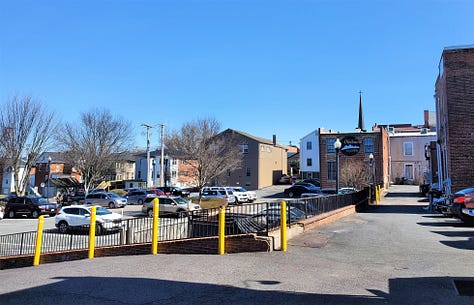
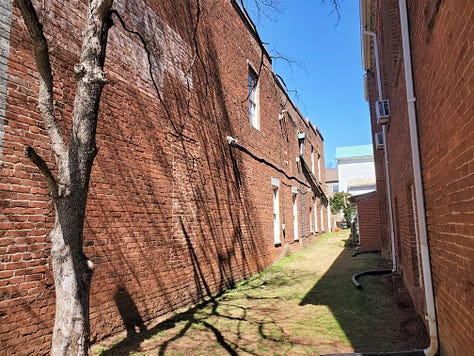
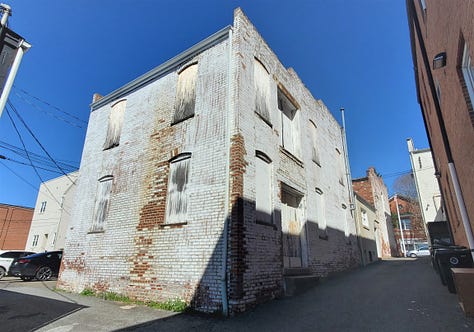

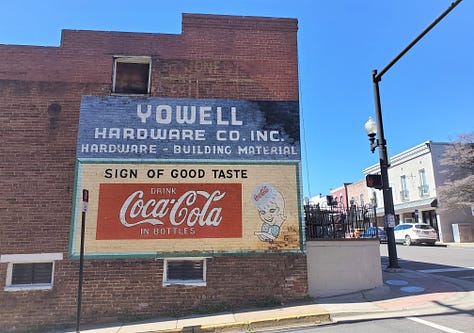
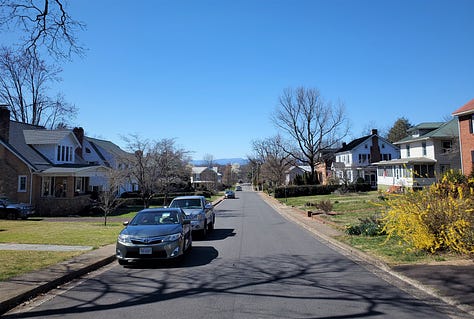


Such a small, compact, place; so much room for everyone.
My belief—my argument—is that a place like Culpeper is fundamentally, ontologically, a city. Not in a comparative or analogous way, but literally. And it would have been understood as such by its residents for most of its history.
You can take a block of Brooklyn, or Old Town Alexandria, or Colonial Philadelphia—or Culpeper, or Flemington, or Staunton, or Frederick—urban settlements with wildly differing histories and population counts—and their land use is essentially the same. The classification of the city as a beast of its own, and the subsuming of the small town into the suburbs, is a profound, ahistorical error.
Culpeper continues to grow, but mostly, as the town’s official history notes, in a car-dependent pattern on its edges. In one sense this preserves the old town. But it also means the real, everyday business, the “meat and potatoes,” of living—groceries, doctors, schools, bank visits—takes place in a landscape nobody loves. When we conceive of these tiny cities we have inherited as merely suburban lifestyle amenities, we go off the rails.
What makes our small towns lovely and lovable is not that they never change—and therefore must be preserved in amber—but that what they have is great. And the key to good growth is relearning to how build more of what we really love.
Related Reading:
Thank you for reading! Please consider upgrading to a paid subscription to help support this newsletter, discounted just this week! You’ll get a weekly subscribers-only post, plus full access to the archive: over 600 posts and growing. And you’ll help ensure more material like this!




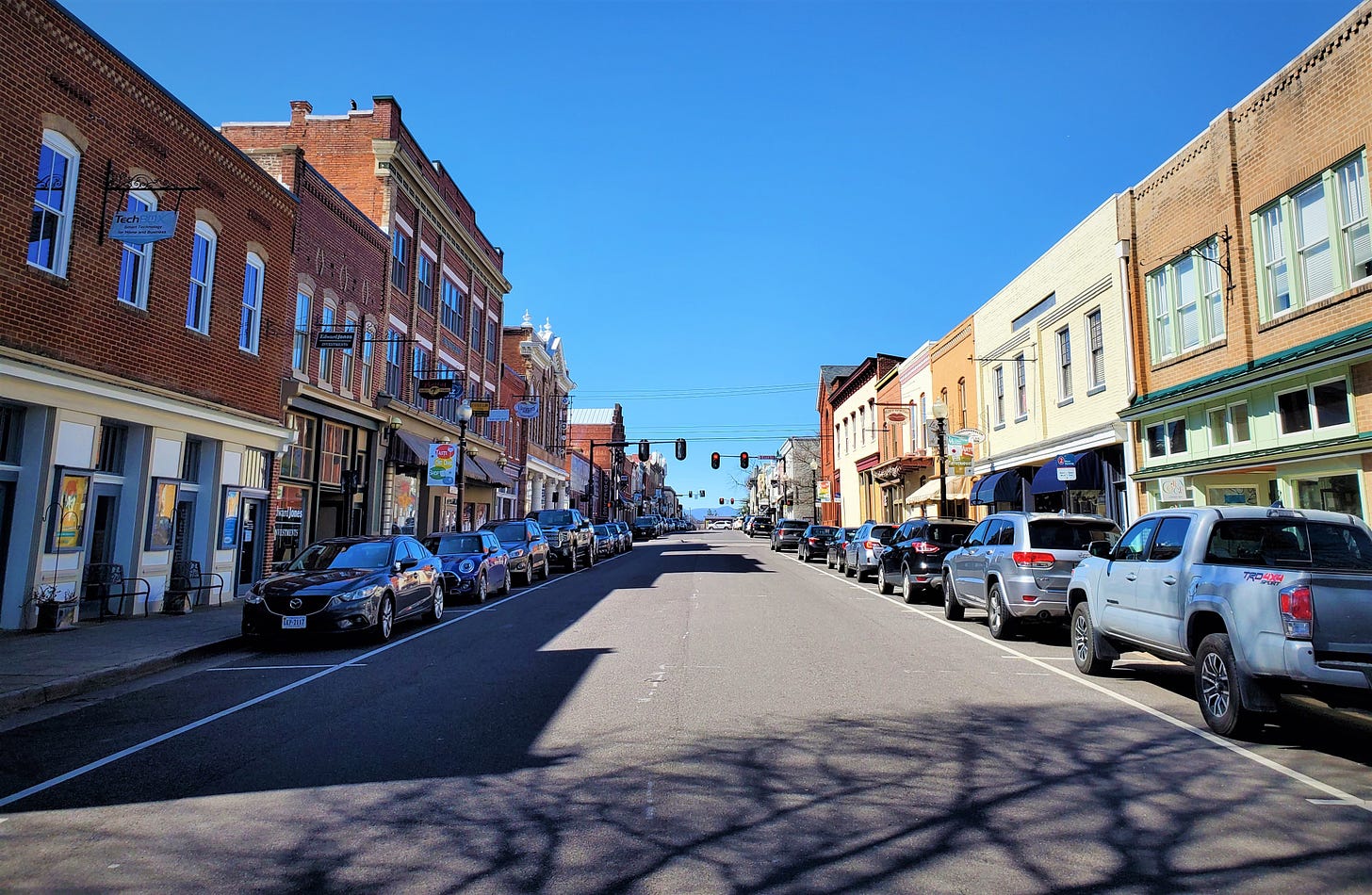
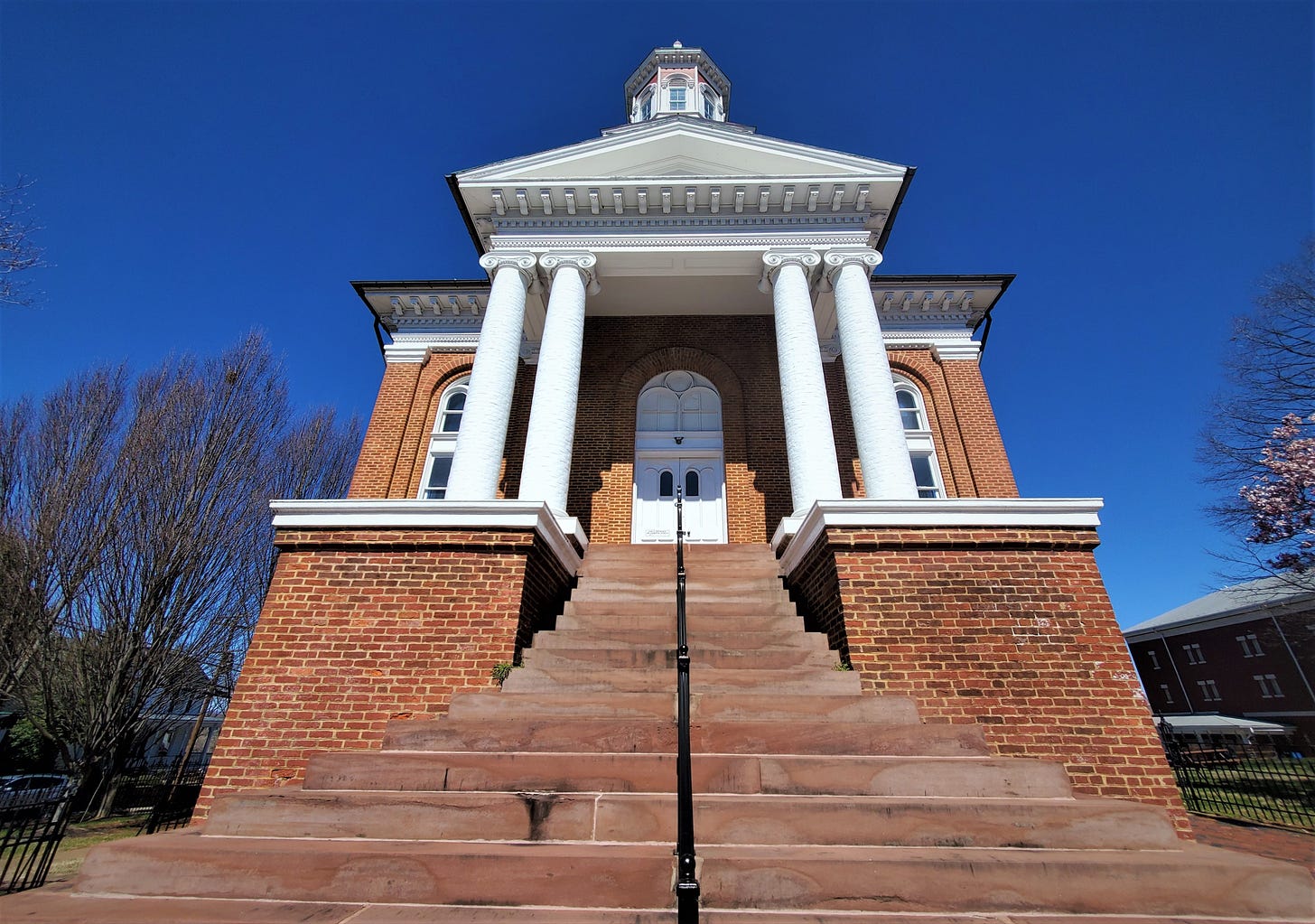

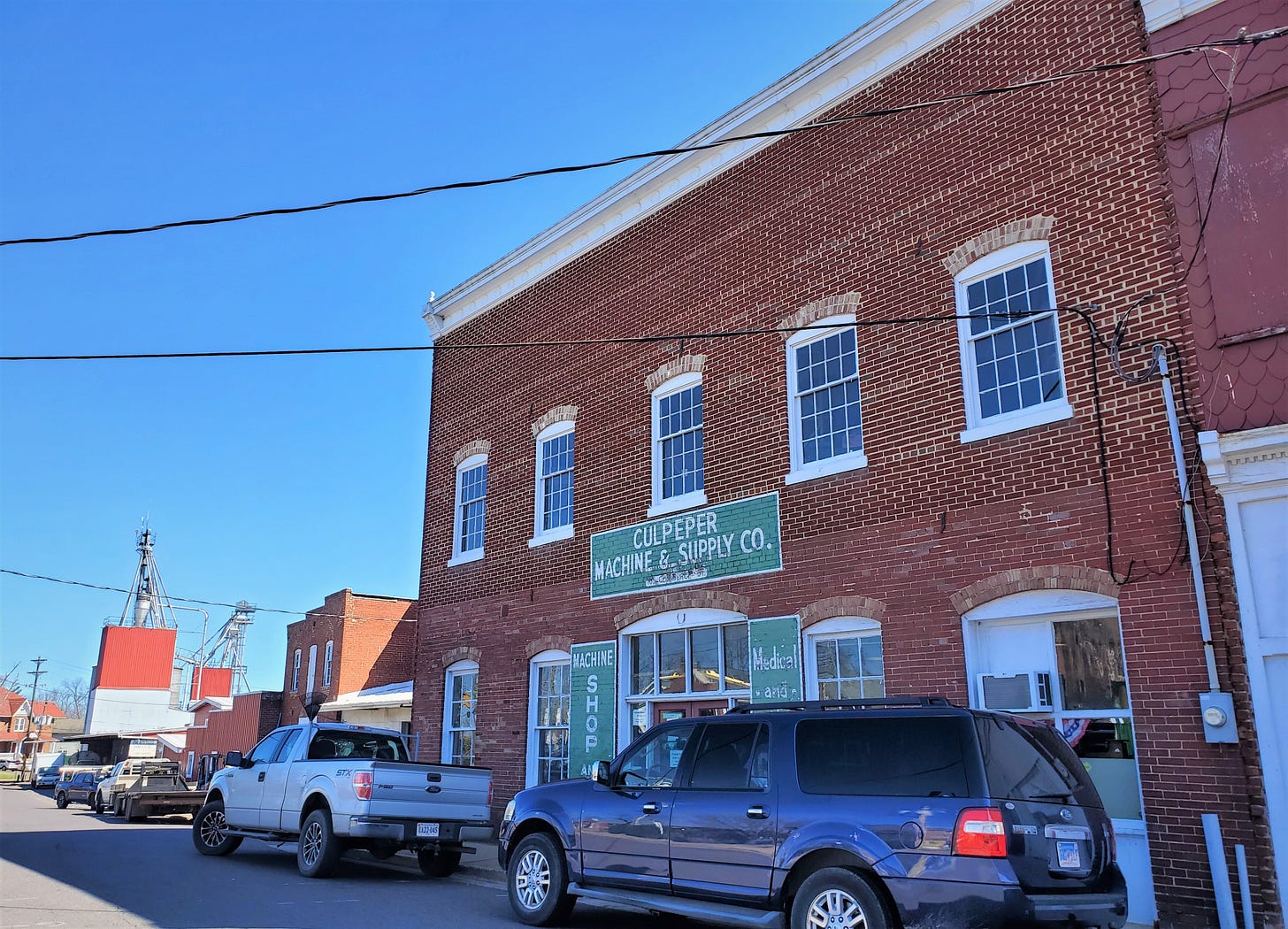
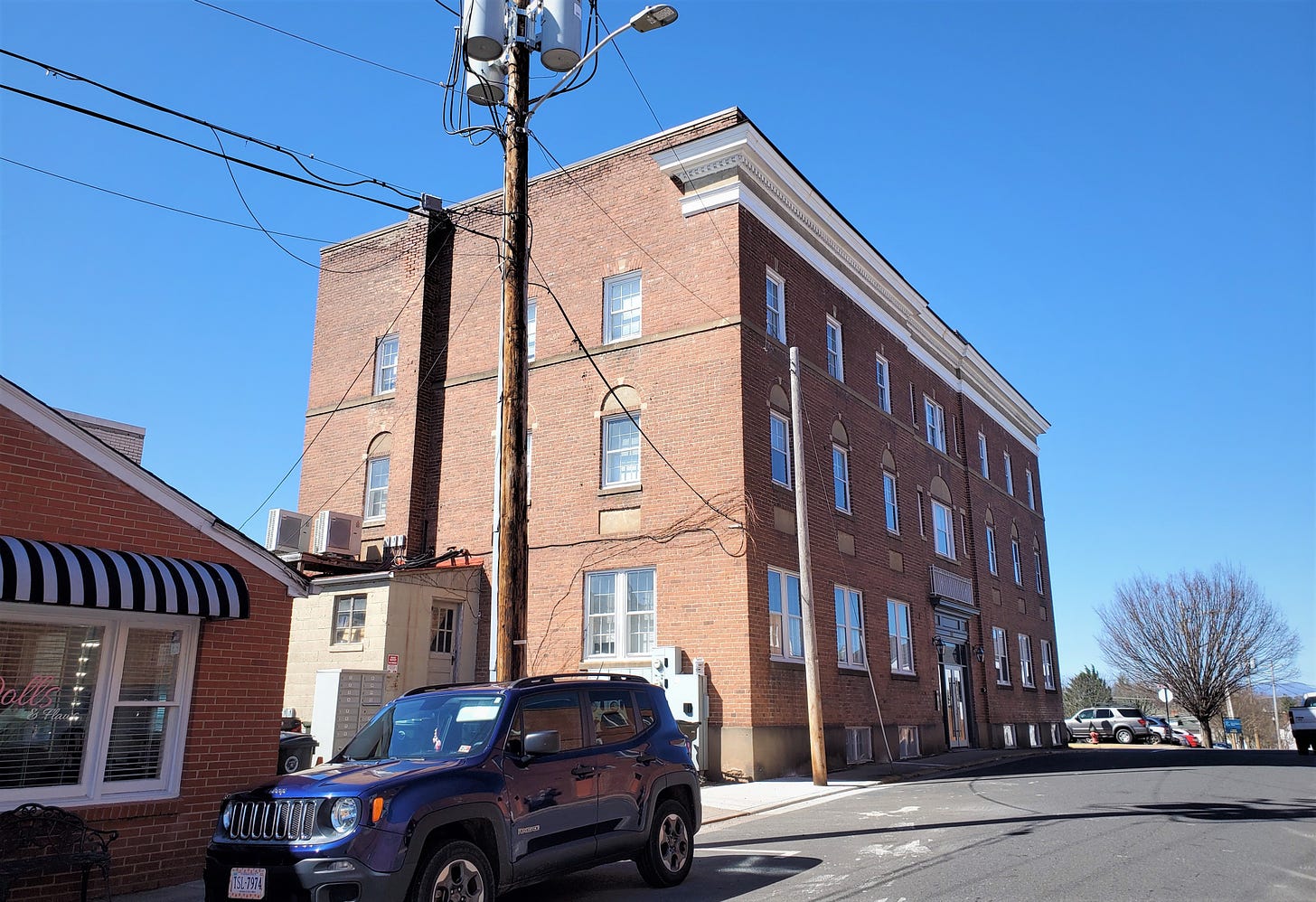
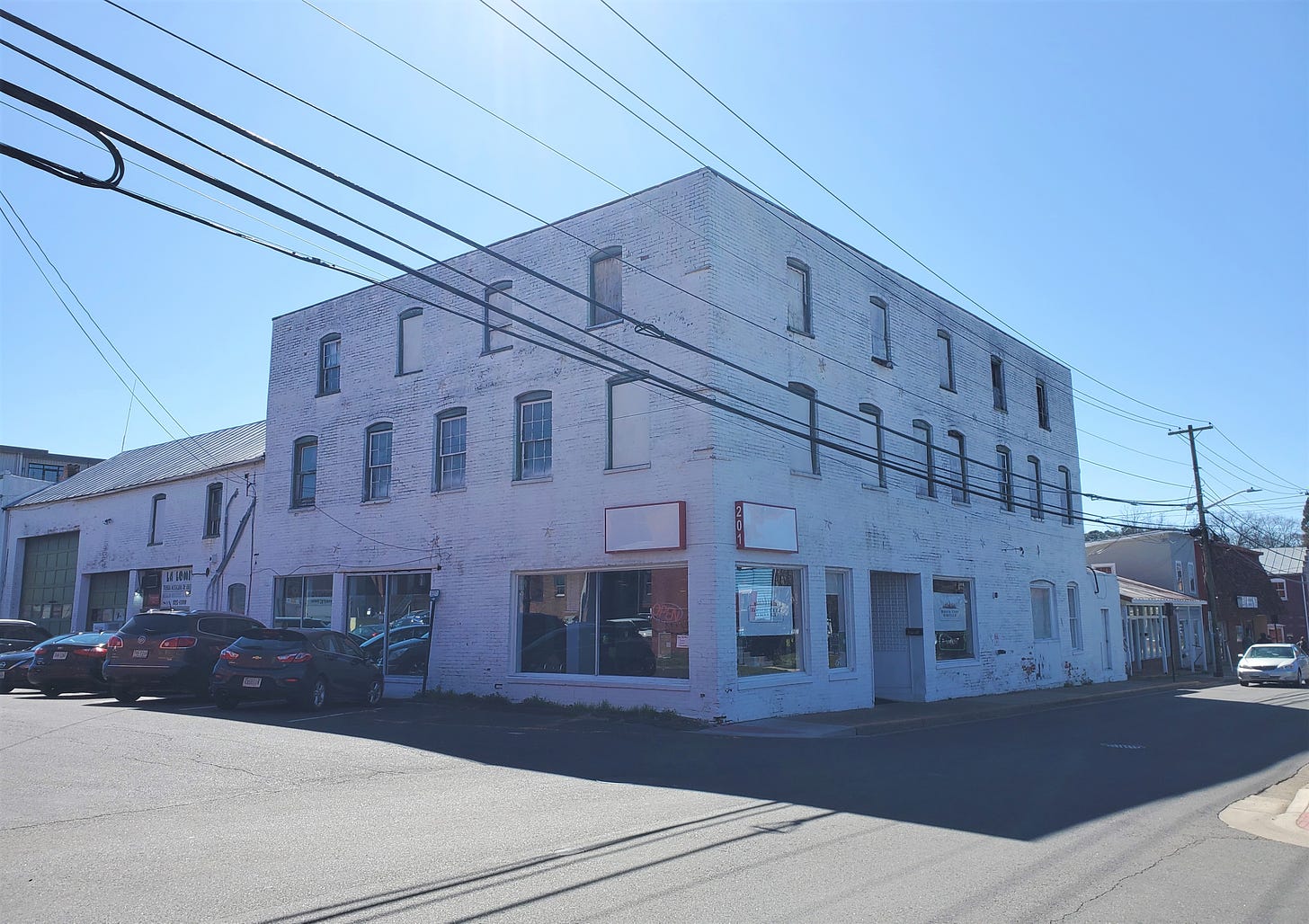
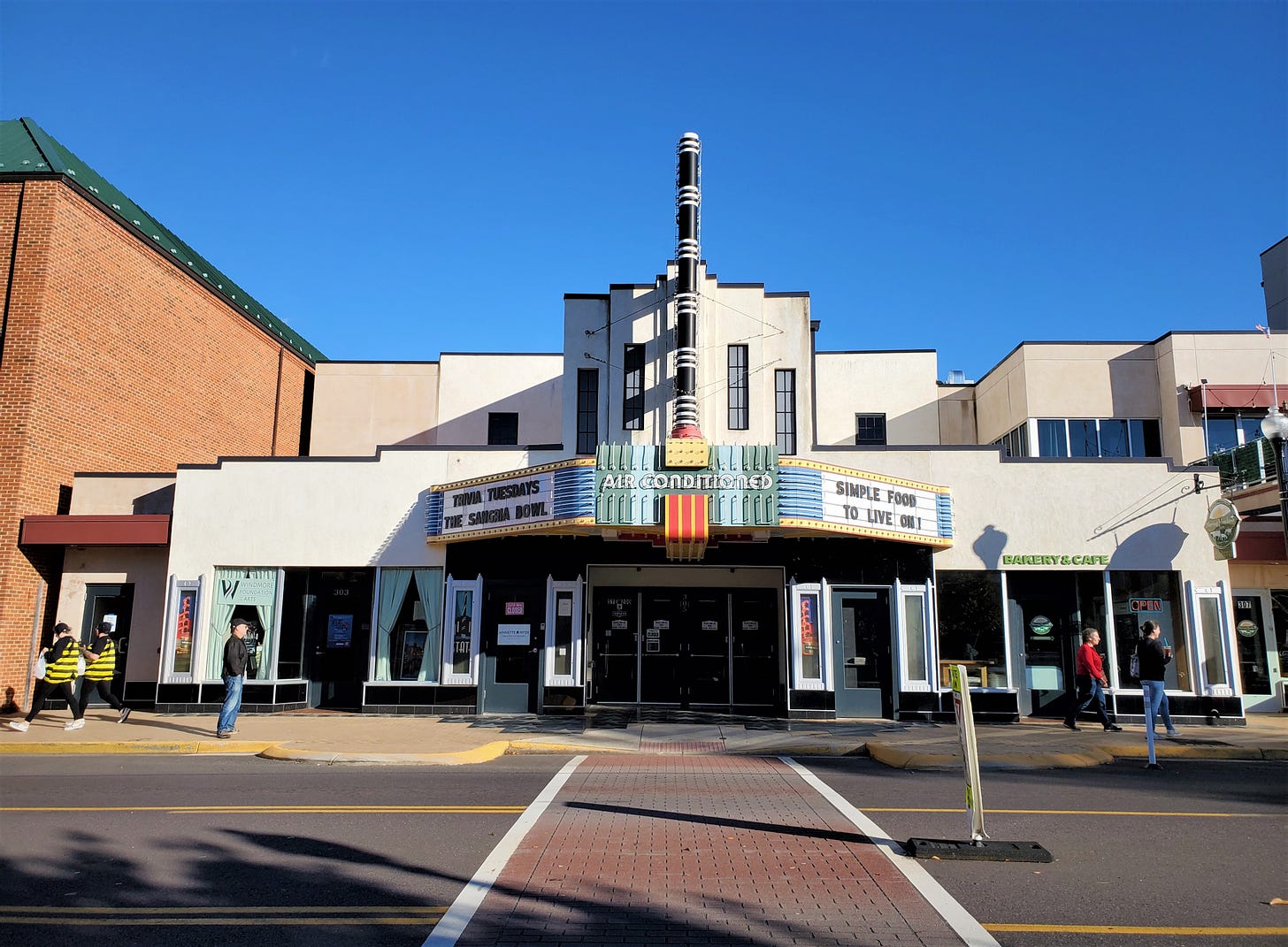

"Its origin goes back a decade earlier—to 1749"
It's so long ago that I no longer remember the source, but I recall that land speculation was a major source of wealth, especially for those with investment capital (eg, Washington), for several centuries in American history (even before the railroad). And land speculation usually didn't take the form of, "buy several thousand acres of forest and wait for timber prices to rise" - there was plenty of other forest, labor was expensive, and there was probably no cost-efficient way to get that timber to the European market even if you cut it.
No, land speculation meant: buy 100 acres and lay out a town, then try to sell building lots for houses. If the town takes off, land you bought for cents/acre could you up a hundredfold (just stabbing at numbers here). Often, a group of investors would go in together. The fact that surveyor was a common profession for well-to-do young men was no accident; it was driven by land marketing schemes.
Classic example: https://en.wikipedia.org/wiki/Ohio_Company. For a later example of this phenomenon, see "Sons of the Profits", and note that much of the drive to develop Seattle was in order to increase the land value so that the original founders would make more when they sold it in small pieces.
Of course, the frequent success of these attempts was driven by America's explosive growth in population, thanks to immigration. Selling off bits of this country to newcomers for high prices is a storied part of our history.
I don't know specifics of Culpeper, but it would be interesting to see who owned the property in 1759 - was it Thomas Fairfax? - and how the vote in the House of Burgesses was influenced.
Point being: historical urbanism is about investment, growth, and profit. The creation of cities and towns is often intentional and driven by fundamental human desires and economic forces.
I recently visited Culpeper for a wedding, and I was charmed by its downtown. I didn't realize it had such historical roots and it's more akin to a city than not. Interesting piece!